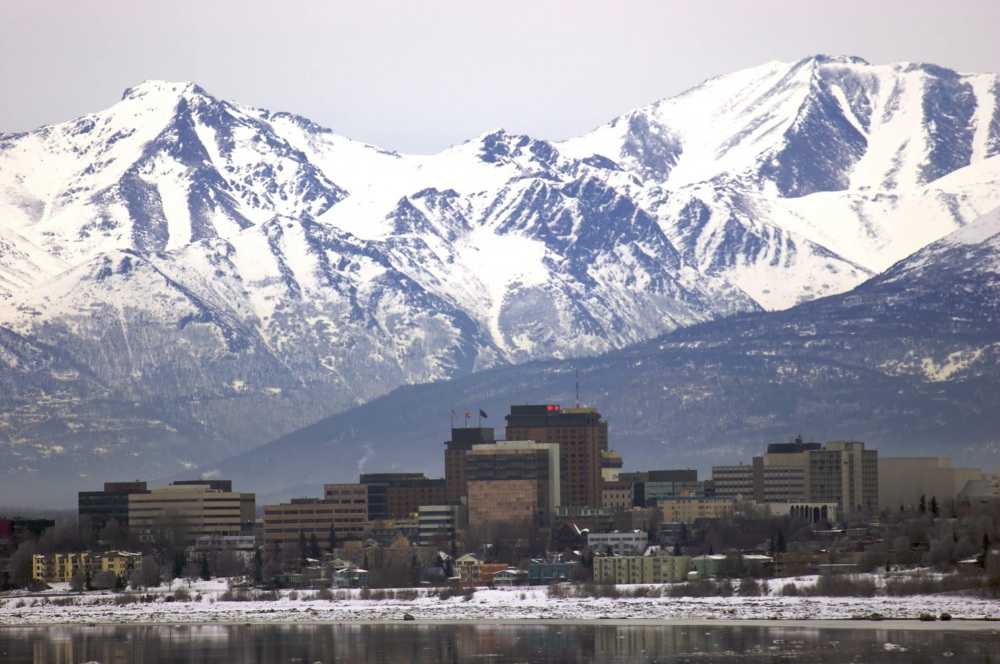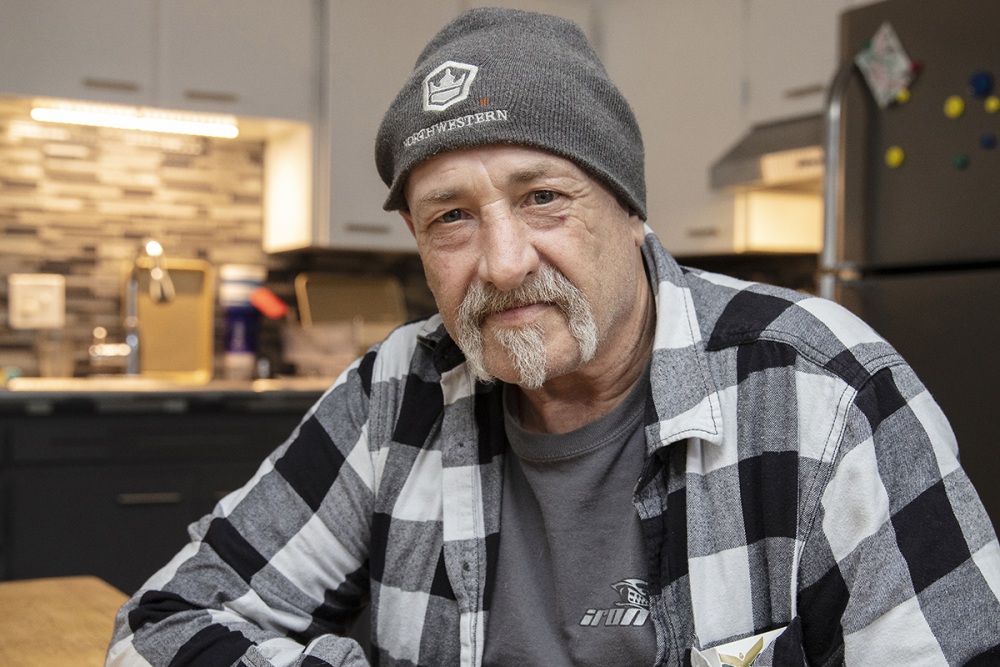

Public Sector Solutions, Homelessness & Housing, Health, Results-Based Funding
Key Takeaway
The Municipality of Anchorage committed up to $4.5 million in outcome payments that will get recycled back into the project contingent on how many residents receive and maintain stable housing. Home for Good is a promising example of how to finance collaborative, accountable projects to stabilize people with long histories of homelessness.
In December in Anchorage, Alaska, there are only five hours of daylight, the average nighttime temperature is below 15 degrees, and over a thousand people experience homelessness on any given night. Like other cities throughout the country, homelessness is a persistent, devastating challenge. But local leaders are determined to meet the moment by launching the largest scale-up of permanent supportive housing ever in Alaska, through a project called Home for Good.
Home for Good is a Pay for Success project designed to help 150 residents of Anchorage experiencing persistent homelessness access permanent housing and supportive services with a goal of reaching and maintaining housing stability. Social Finance helped advise and structure the project alongside the Municipality of Anchorage and the United Way of Anchorage, with expertise from the Corporation for Supportive Housing and support from more than 20 other government, nonprofit, and philanthropic organizations. This three-year initiative, which launched in October 2020, is funded by a combination of $2 million in grants from local philanthropy and eligible state and federal funding streams for housing vouchers and healthcare. The Municipality of Anchorage committed up to $4.5 million in outcome payments that will get recycled back into the project contingent on how many residents receive and maintain stable housing. Home for Good will expand supportive housing—which pairs access to high-quality, affordable housing with intensive supportive services—by 150 units, more than tripling Anchorage’s supportive housing supply. Alaska Behavioral Health and Southcentral Foundation are providing supportive services for the project.
Watch the webinar recording to learn more:
Like other Pay for Success projects, Home for Good demands cross-sector collaboration (between local government, nonprofit services providers, and philanthropy), establishes accountability for taxpayer dollars (the Municipality pays only to the extent that the project achieves its housing stability goals, as measured by a third-party evaluation), and uses a combination of public and private funding. But in this project, the upfront funders are not seeking any repayment. The funders—Alaska Mental Health Trust Authority, Premera Blue Cross, Providence Alaska Foundation, and Rasmuson Foundation—all agreed to commit any potential repayment back to the project to sustain services. And after the upfront funding is spent, the project will be sustained by potential accrued outcome payments from the Municipality of Anchorage for the three-year life of the project.
This funding structure helped accelerate the timeline to launch Home for Good. With the unfolding COVID-19 pandemic, there was even greater urgency to expand housing options as quickly as possible to residents in need. With more than a decade of experience helping to build PFS projects, Social Finance played a crucial role in convening partners to redesign the budget, contracting, and governance processes to accelerate the design of the new structure, and ultimately meet the urgency of the moment. This design was ultimately a better fit for all stakeholders because it resulted in a simpler, faster, and more cost-efficient solution.
Finally, this new structure also allowed the project to be led and funded locally. Home for Good exists as part of a larger community-wide effort to end homelessness in Anchorage, drawing on support and leadership from the Municipality of Anchorage, Alaska Department of Corrections, Anchorage Coalition to End Homelessness, homelessness service providers, critical state agencies, and philanthropic funders. In doing so, it breeds new and stronger collaborations to share and integrate system-wide, multi-agency data; ensure greater coordination between housing and supportive services; and build new partnerships across government, nonprofits, and healthcare providers.
Social Finance’s role throughout the design process is to facilitate these partnerships to create a stronger, more collaborative system of care in Anchorage for individuals experiencing homelessness. We worked with the Municipality to integrate data from the police, fire, health, and homeless service systems (the first effort of this kind in Anchorage), which allows the project to identify high-service users and rigorously track and measure success in housing through the Homelessness Management Information System (HMIS). The project budget also includes a flexible housing fund to cover gaps in the system, such as security deposit or initial rental assistance, to ensure people get and stay housed.
The project follows a Housing First philosophy and aims to improve stable housing and physical and mental health, and reduce avoidable interactions with emergency medical services, shelters, and the criminal justice system. By improving participants’ access to long-term housing vouchers and expanding providers’ ability to bill Medicaid for services that address the social determinants of health, the project will continue to build community capacity to sustain this intervention. But making progress requires deliberate effort at every step. We are fortunate to work with determined partners that can creatively address the needs of an individual in one moment and bring together state-level policymakers to think long-term the next. Already, Home for Good is a promising example of how to finance collaborative, accountable projects to stabilize people with long histories of homelessness. As the project continues, we are working to stay relentlessly focused on our goal of housing stability, while strengthening the capacity homeless services in Anchorage overall.
Learn more about Home for Good →
Related Insight

Alaska’s First Pay for Success Program Helps People Experiencing Homelessness Get—And Stay—Stably Housed, Resulting in First Outcome Payment
As a result of the measured impact the Home for Good program has had on individuals experiencing persistent homelessness in the community, the Municipality of Anchorage made its first outcome payment in July 2021.

Home for Good Aims to Help 150 of Anchorage’s Most Vulnerable
Home for Good is a three-year program helping 150 people experiencing homelessness in Anchorage, Alaska by connecting them with housing and support services. Anchorage resident Shane discusses the impact the program has had on his…

Home at Last
Home for Good is a three-year program helping 150 people experiencing homelessness in Anchorage, Alaska by connecting them with housing and support services. Anchorage resident Alice discusses the impact the program has had on her…